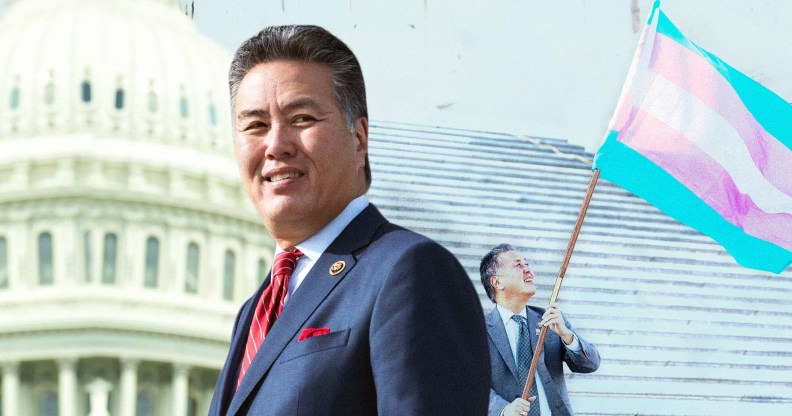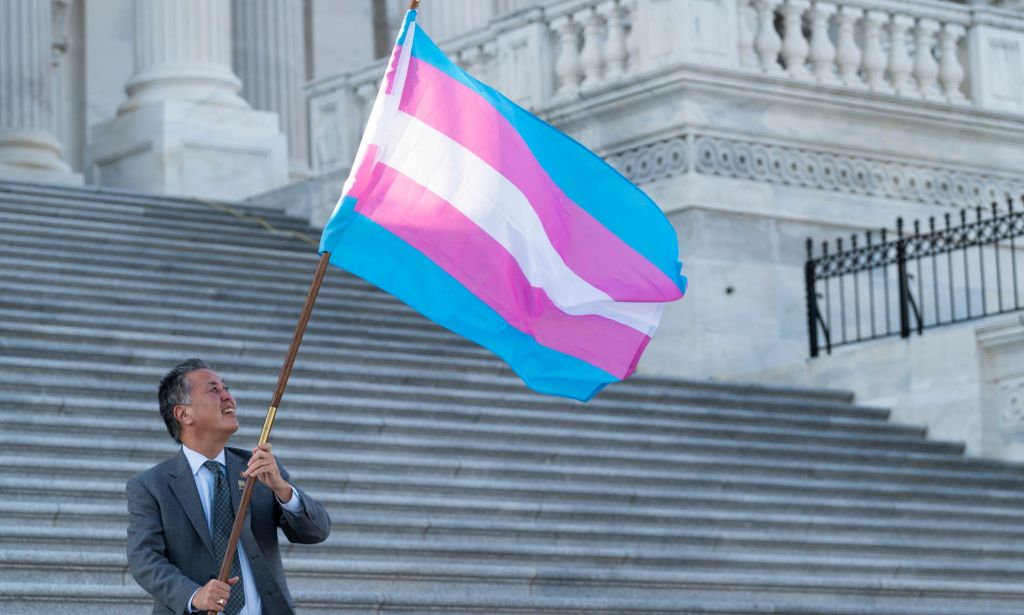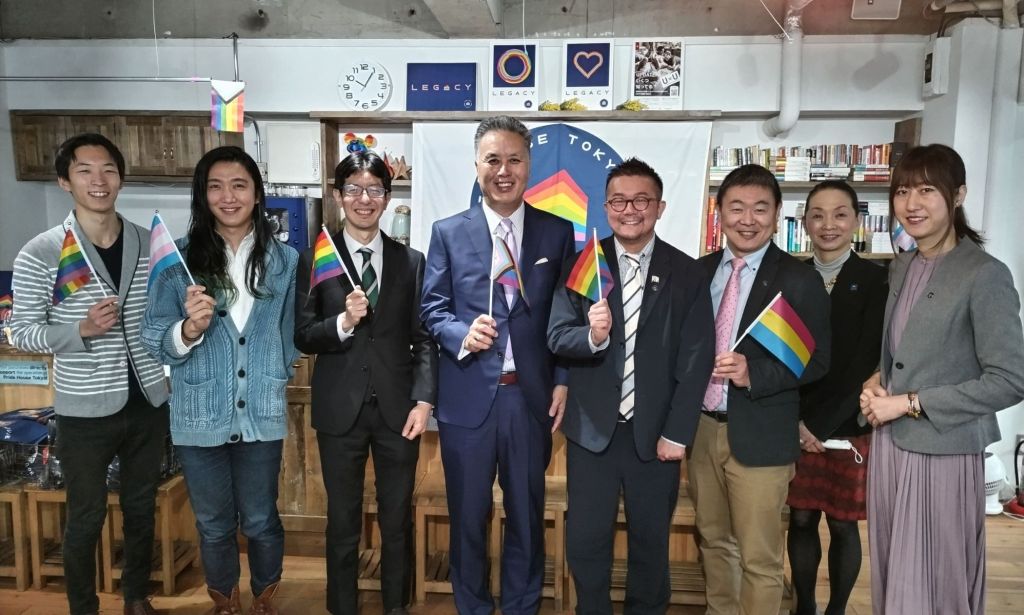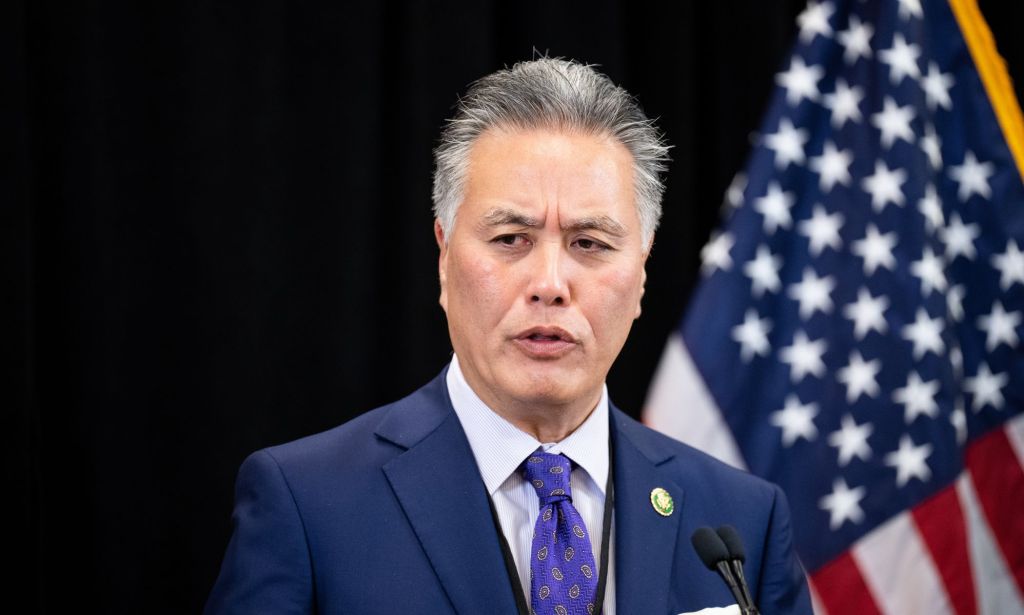Mark Takano: History-making gay congressman on his global fight for LGBTQ+ rights

Mark Takano, the first openly LGBTQ+ person of colour elected to Congress, says it’s time for the Japanese government to “do something substantive for LGBTQ rights”. (Getty)
Mark Takano, the first openly LGBTQ+ person of colour elected to Congress, says it's time for the Japanese government to "do something substantive for LGBTQ rights". (Getty)
Since becoming the first openly LGBTQ+ person of colour elected to Congress in 2013, House representative Mark Takano has been fighting for the queer community both in the US and abroad.
“What the hell good is representation that doesn’t represent you?” Takano tells PinkNews.
“When there are moments that the community is most in danger, it’s a full, five alarm fire that I’ve got to put out.”
The congressman was recently part of a 12-hour committee hearing on two bills: an anti-trans measure and an anti-LGBTQ+ education bill. He fought hard to get the “insidious” measures struck down, but was struck by how Republicans seemed utterly uninformed on the very rights they were rallying against.
“There were moments [in the debate] where one of my Republican colleagues was talking about being woke and critical race theory,” he says.
“At one point, I just asked him: ‘What is your definition of both of these things?’ and they couldn’t answer the question.

“They were just throwing words out there – throwing out a word salad – and there [is] very irresponsible language.
“They just don’t want to be accountable for anything they say. They want to use these words to stir up the extreme anger and their base from which they derive their power.”
Takano, who was born in California and represents its 39th district, is of Japanese descent, and has been particularly involved with the country’s fight for LGBTQ+ equality.
Japan remains the only G7 country that doesn’t recognise same-sex marriage. The issue has made global headlines recently after Japanese prime minister Fumio Kishida fired a senior aide for saying he didn’t even “want to look at” LGBTQ+ couples in February. Weeks later, Kishida said he believes disallowing same-sex unions is not “unjust”.
The statement – which Kishida later apologised for – came just days before Takano took a scheduled trip to Japan, where he met with LGBTQ+ activists and petitioned political leaders on pushing forward with queer rights.
The Democrat believes the “Japanese people are clearly way ahead of the government” on equality.

“I told the leadership that we just saw in polling that 64 per cent of people [in Japan] think there should be greater protections for LGBT people – 80 per cent of the young people in that poll think that,” Takano says.
“But they’re being held back by a very vocal and tenacious minority with very traditionalist sorts of views. Some of whom have connections to the Unification Church [a religious movement headquartered in South Korea labelled “cult-like” by critics], and that’s another layer of complexity there.”
With all eyes trained on Japan for the upcoming G7 summit in Hiroshima, taking place 19-21 May, there’s a feeling that change could be imminent.
Japan is under pressure from its G7 peers to recognise LGBTQ+ rights. Local activists have called on Kishida to bring forward essential protections ahead of the summit, while the main opposition party, the Constitutional Democratic Party (CDP), submitted a bill on 6 March to finally recognise same-sex marriage in the country
“What I’m hearing from my friends and some activists is that they feel change is in the air – that the reaction to what happened with the prime minister’s aide [created] gyrations and they’re off kilter,” Takano says.
“There’s a big sense among activists in Japan that the G7 summit is a big opportunity for the Japanese government to go beyond a gesture, to do something substantive for LGBTQ rights.”
He suggests this could be a non-discrimination measure, perhaps as a clause in the inclusive education bill being pushed by the LDP following the incident with Kishida’s aide
“Six of the seven G7 countries have significant protections for LGBT people that recognise same-sex unions. Japan is the one outlier,” Takano says.
“Now, as we’re confronting authoritarianism, it’s an existential battle for the idea of liberal democracy. What are the G7 about? We’re united by the fact that we’re liberal democracies. We share a core value of respect and dignity for human rights.”

Takano says he often reflects on the Japanese term “gaiatsu” – which he says means “outside influence” or foreign “pressure to get something to change”.
“There is this idea of universal human rights and emerging global standards,” he says. “And if you fall below those standards, you got to be concerned in terms of ideas of civilization and common decency. These are a product of political discourse, public discourse.
“We’ve coined a phrase in my office, we call it ‘gay-atsu’. Whenever I go around the world and meet with leaders, there’s always an element of gay-atsu.
“Do something more for the LGBTQI community. Give them a space, that dignified space, in your county. We care about that as Americans. We care about that as people committed to human rights.”

